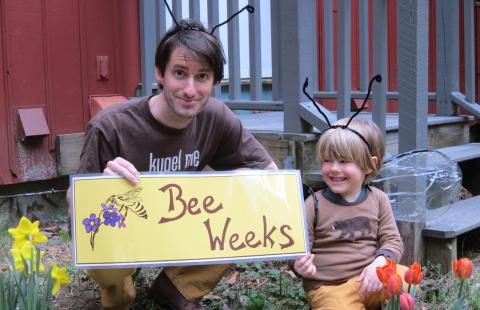What were the specific goals of this creative economy project? Describe the community development challenge or opportunity that your project was designed to address:
Honeybee, native bee and pollinator populations world wide are in decline. Many native bee species have already disappeared. The personal and financial health of most human communities depend on pollination, a requirement for many of the fruits, vegetables and grains we currently grow to feed ourselves - not to mention the value of species in and for themselves.
By putting a range of activities under one umbrella, bee weeks catalyze community conversation and media attention. There is "something for everyone" and everyone has a chance to help the situation improve in their backyard, on their windowsill and in community spaces.
Who was involved in this project and what did they do? (be sure to include the partners from outside of the creative sector and how local voices were included):
Piti Theatre Company: public performance and school residency of touring musical "To Bee or Not to Bee"
Belfast Public Library: Native Bee Hive Construction Workshop
Belfast Co-op: Activist Art Workshop
Dirigo Learning: Hands on Pollinator Museum
How does this project relate to a larger community development strategy?
By galvanizing public support for pollinators, Bee Weeks raise awareness of their role in agriculture, ie making possible 1 in every three bites of food we eat. Greenfield, MA, now going on their 5th annual Bee Week, has taken their local honeybee history on as piece of their town's identity, creating bee inspired public art.
What projects or places, if any, inspired your approach to this creative economy project?
The root of this project, which has taken place in towns around New England but has so far "taken root" in Greenfield MA and Belfast, ME was inspired by Piti Theatre's To Bee or Not to Bee performance. The show encourages pollinator stewardship and audiences receive packets of bee friendly flower seeds to plant but it was clear that a series of events over the course of a week could help draw media attention and shine light on the work of local environmental and related organizations.
